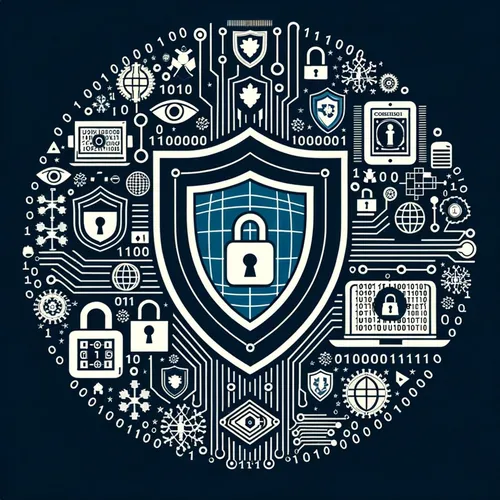US Cyber Crackdown: China Hacks Back, SAP Bugs Run Wild, and Quantum Looms Large
- Author
- Quiet. Please
- Published
- Tue 08 Jul 2025
- Episode Link
- https://www.spreaker.com/episode/us-cyber-crackdown-china-hacks-back-sap-bugs-run-wild-and-quantum-looms-large--66903911
This is your Tech Shield: US vs China Updates podcast.
Hey listeners, Ting here—your go-to for all things China, cyber, and hacking, strapped in with a fresh roundup of this week’s Tech Shield: US vs China Updates. We’ve had a wild few days. Let’s dig in, byte by byte, because if you blink in this race, you’re obsolete.
First up, the Department of Justice is hitting “go” on its Data Security Program. Starting July 9, enforcement kicks in on that sweeping new rule designed to block sensitive US personal and government-related data from being transferred to China and other “countries of concern.” The so-called DSP, which had a brief grace period for companies scrambling to comply, is now law of the cyber-land. What does that mean? US companies handling data with even a whiff of cross-border exposure need to button up privacy, beef up cybersecurity, and basically treat every database like it’s Area 51. The DOJ’s warning is crystal clear: after July 8, if you’re not compliant, expect the National Security Division to bring the hammer down.
Why the urgency? National security, plain and simple. US policymakers—especially under the Trump Administration—are in no mood for espionage games. This isn’t just a legal shakeup, it’s a tectonic policy shift that signals just how entwined geopolitics and cyber really are.
Meanwhile, China’s Ministry of State Security is throwing counter-punches, accusing the US of “wide-scale cyber espionage”—alleging hacks into key Chinese infrastructure. According to China Daily Asia, these claims are making the global cybersecurity landscape even messier, with each side suspiciously eyeing the other’s moves and motivations.
But let’s zero in on tech: patches, vulnerabilities, and the tools we’re wielding to keep the adversaries at bay. The July SAP Patch Day just dropped a record number of fixes. The headline? A terrifying CVE-2025-30012 vulnerability, scored a perfect 10.0 on the “bad news” scale, letting threat actors fully compromise legacy SAP SRM systems via deserialization bugs. In a win for defenders, SAP’s security team and Onapsis worked overtime to get fixes out, but plenty of organizations still haven’t migrated to safer platforms. If you’re running old SAP, please patch like your digital life depends on it—because it does.
Looking broader, resilience is the new buzzword. The Atlantic Council stresses that China’s Volt Typhoon operation already compromised US critical infrastructure—think energy, comms, transit. And as if that’s not hairy enough, quantum computing looms on the horizon, threatening to crack today’s encryption like a walnut. The scramble is on for post-quantum cryptography, but the race is tight and the stakes are existential.
Expert take? The US response is growing more coordinated, but China’s hacker army is massive—FBI Director Christopher Wray testified last year that they outnumber his cyber team fifty-to-one. It’s a digital arms race with no finish line. While regulations and enforcement are ramping up, legacy systems and slow patch cycles remain weak spots. And with emerging tech like AI and quantum in play, the surface area just keeps expanding.
That’s the download for now, listeners. Thanks for tuning in to Tech Shield with Ting. Hit that subscribe button so you never miss the latest pulse on US-China cyber maneuvers. This has been a quiet please production, for more check out quiet please dot ai.
For more http://www.quietplease.ai
Get the best deals https://amzn.to/3ODvOta
